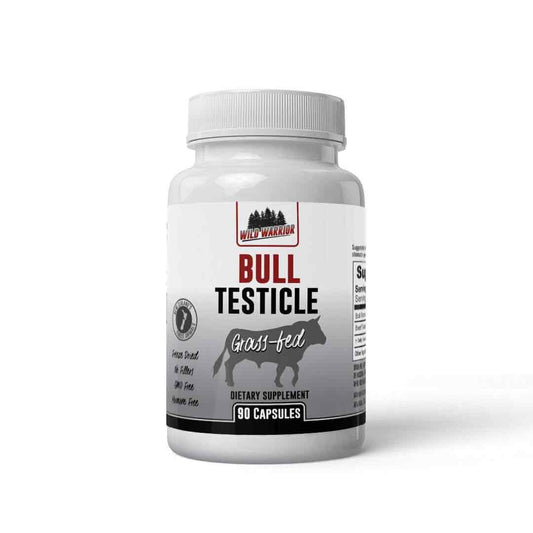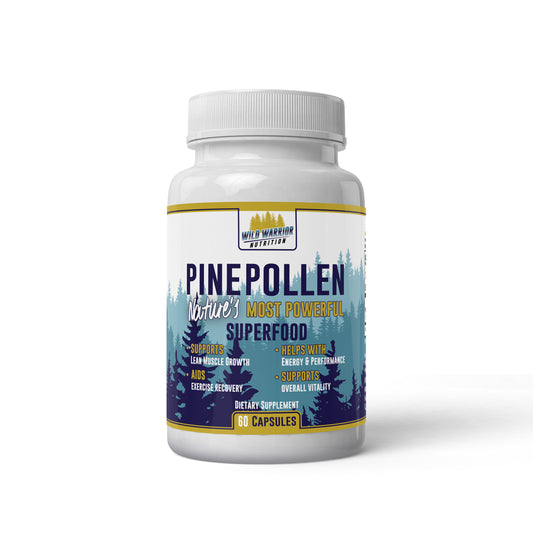Unfortunately, you can't go a day without reading an article on how pesticides are ruining men's health, but now to make it worse you now have to worry about microplastics in your testicles.
In a groundbreaking yet concerning revelation, recent studies have uncovered the presence of microplastics in human testicle tissue. This finding adds to the growing body of evidence highlighting the pervasive and potentially harmful impact of microplastics on human health. Below we discuss the details of this study, explore the potential health implications, and discuss why switching to glass water bottles is a prudent choice for men aiming to protect their reproductive health.

The Study: Microplastics in Testicle Tissue
A team of scientists from several leading research institutions conducted an extensive study to investigate the presence of microplastics in human tissues. Using sophisticated analytical techniques, they examined testicle tissue samples from a group of men and discovered traces of microplastics embedded within the tissue. These tiny plastic particles, often less than 5 millimeters in size, are derived from the breakdown of larger plastic products and are ubiquitous in our environment.
The researchers identified several types of microplastics, including polyethylene, polypropylene, and polystyrene, which are commonly found in everyday items such as plastic bottles, packaging materials, and clothing. The study's results were published in a peer-reviewed journal, raising significant concerns about the potential impact of these particles on male reproductive health.
Potential Health Implications
While the long-term effects of microplastics on human health are still being studied, the presence of these particles in testicle tissue raises several alarming possibilities:
-
Reproductive Health Risks: Microplastics could potentially disrupt the endocrine system, which regulates hormones crucial for reproductive health. This disruption could lead to decreased sperm quality, lowered testosterone levels, and overall impaired fertility.
-
Inflammatory Responses: The physical presence of foreign particles like microplastics in bodily tissues can trigger inflammatory responses. Chronic inflammation in reproductive tissues may contribute to conditions such as testicular cancer or other reproductive disorders.
-
Cellular Damage: Microplastics have been shown to generate reactive oxygen species (ROS), which can cause oxidative stress and damage cellular structures, including DNA. This damage could impair cellular function and increase the risk of mutations.
Why Men Should Switch to Glass Water Bottles
Considering the potential health risks associated with microplastics, it’s essential to take proactive measures to minimize exposure. One significant step men can take is switching from plastic to glass water bottles. Here’s why:
-
Chemical-Free Hydration: Unlike plastic bottles, glass bottles do not contain harmful chemicals such as bisphenol A (BPA) and phthalates, which can leach into the water and mimic hormones in the body. These chemicals have been linked to various health issues, including hormonal imbalances and reproductive problems.
-
Reduction in Microplastic Consumption: Plastic bottles contribute significantly to microplastic pollution. By using glass bottles, you avoid ingesting microplastics that break down from disposable plastic bottles over time. This simple switch can substantially decrease your daily intake of these harmful particles.
-
Environmental Benefits: Glass bottles are reusable and recyclable, making them an eco-friendly choice. Reducing your reliance on single-use plastics helps decrease plastic waste, which eventually breaks down into microplastics and contaminates ecosystems, including water sources.
-
Long-Term Cost Savings: Investing in a durable glass water bottle can save money in the long run compared to continuously buying single-use plastic bottles. Plus, many glass bottles are designed with protective sleeves to prevent breakage, making them a practical and sustainable option.
The discovery of microplastics in testicle tissue is a wake-up call to reevaluate our daily practices and make conscious choices to protect our health. Switching to glass water bottles and away from plastic tupperware are simple yet effective ways to reduce exposure to microplastics and harmful chemicals, safeguarding reproductive health and contributing to environmental sustainability.
By making this small change, you can take a significant step towards preserving the health of your balls.
Sources:
https://www.scientificamerican.com





